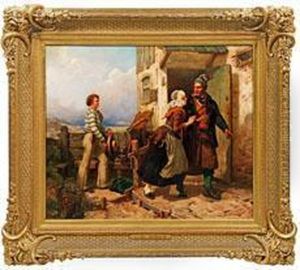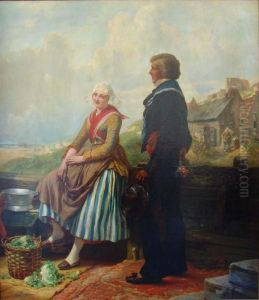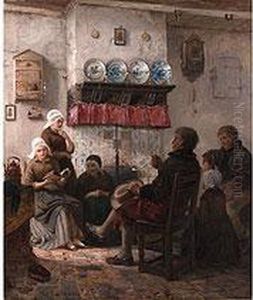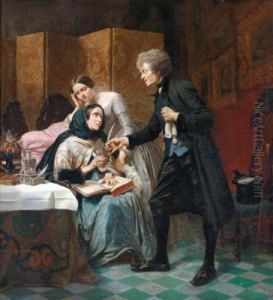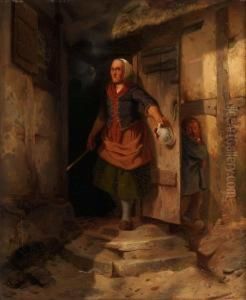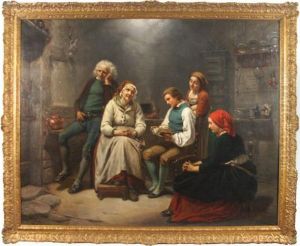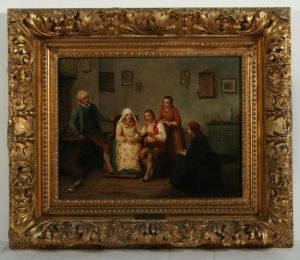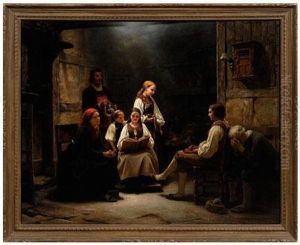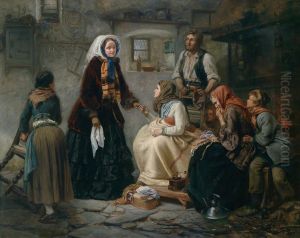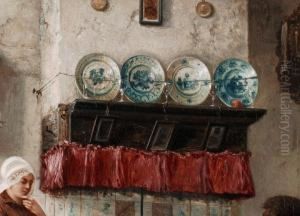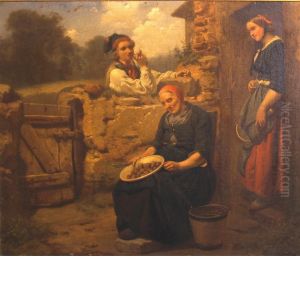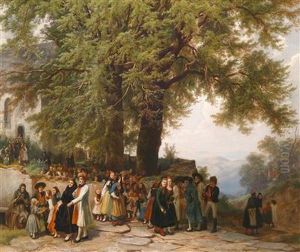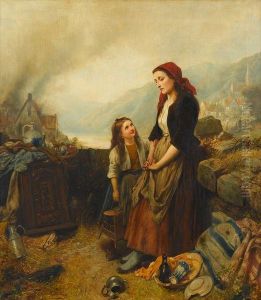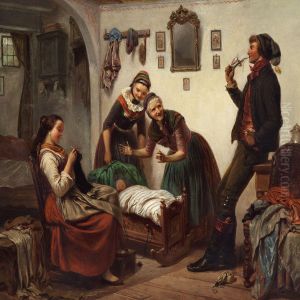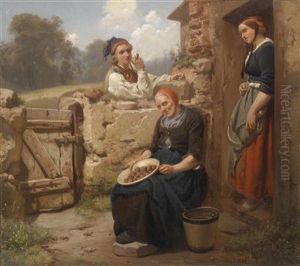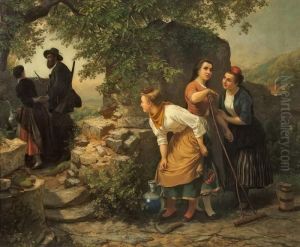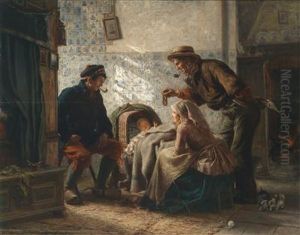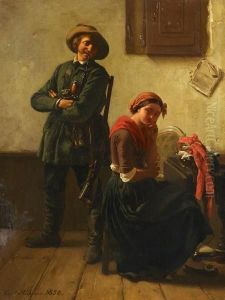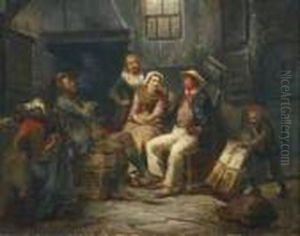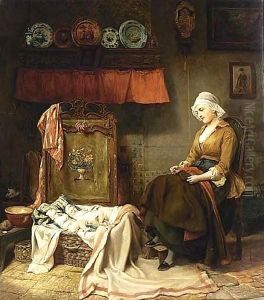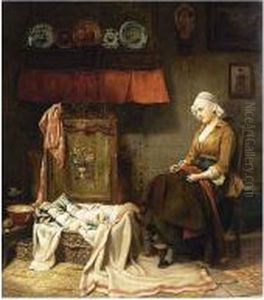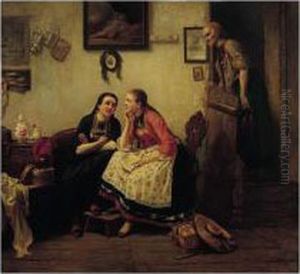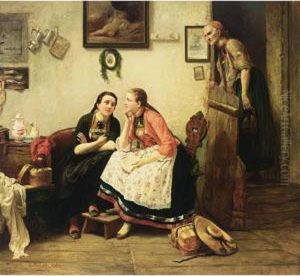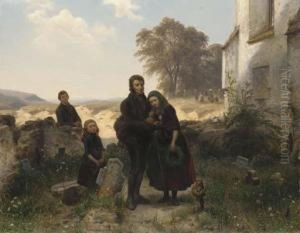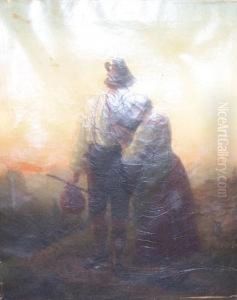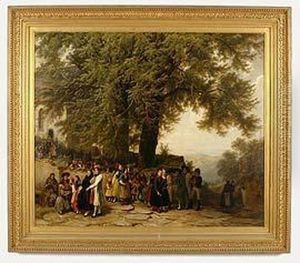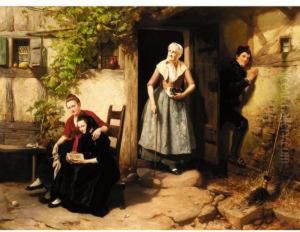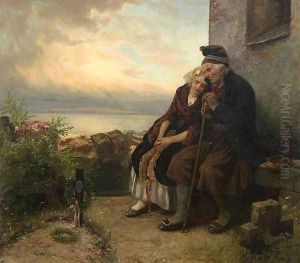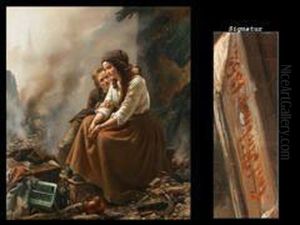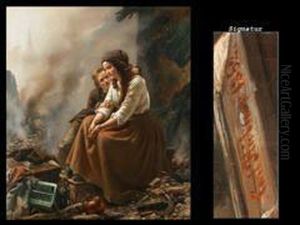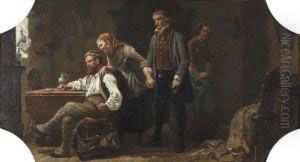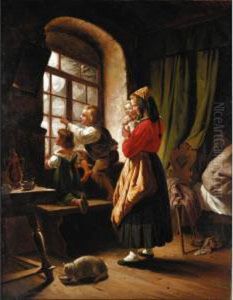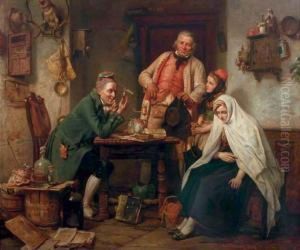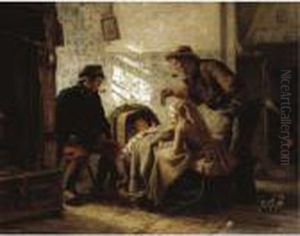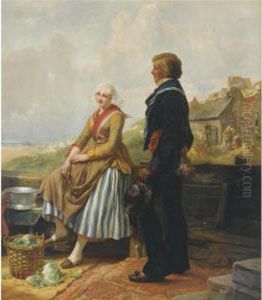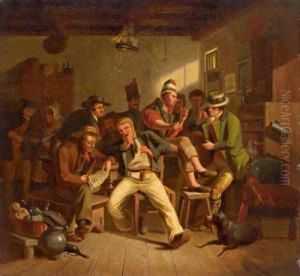Carl Wilhelm Hubner Paintings
Carl Wilhelm Hübner was a German genre painter born on January 17, 1814, in Königsberg, Prussia (now Kaliningrad, Russia). He was known for his detailed and realistic portrayals of scenes from everyday life, which were popular in the 19th century.
Hübner first studied at the Academy of Arts in Königsberg before moving to Düsseldorf in 1839, where he became a part of the Düsseldorf school of painting. This school was known for its meticulous approach to detail and its romantic sensibility, both of which can be seen in Hübner's work.
In Düsseldorf, he studied under the tutelage of Karl Ferdinand Sohn and Wilhelm von Schadow, both of whom were influential figures in the Düsseldorf school. Hübner's genre scenes often depicted the lives of ordinary people, including peasants and the urban poor, and he exhibited a keen interest in social issues and the human condition.
His works were exhibited in major art galleries across Europe, and he gained significant recognition during his lifetime. Some of his notable paintings include 'The Silesian Weavers', which depicts the plight of weavers in Silesia, and 'The Day Laborer's Meal', showing a laborer's family at dinner.
Hübner was not only successful as an artist but also contributed to the academic world by teaching at the Düsseldorf Academy. Through his teaching, he influenced a number of younger artists and helped to perpetuate the techniques and values of the Düsseldorf school.
Carl Wilhelm Hübner's commitment to depicting social realities and his skill in genre painting have earned him a place in the annals of 19th-century German art. He passed away on December 3, 1879, in Düsseldorf, leaving behind a body of work that continues to be appreciated for its historical and artistic value.
